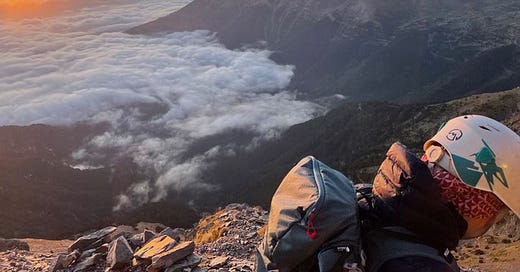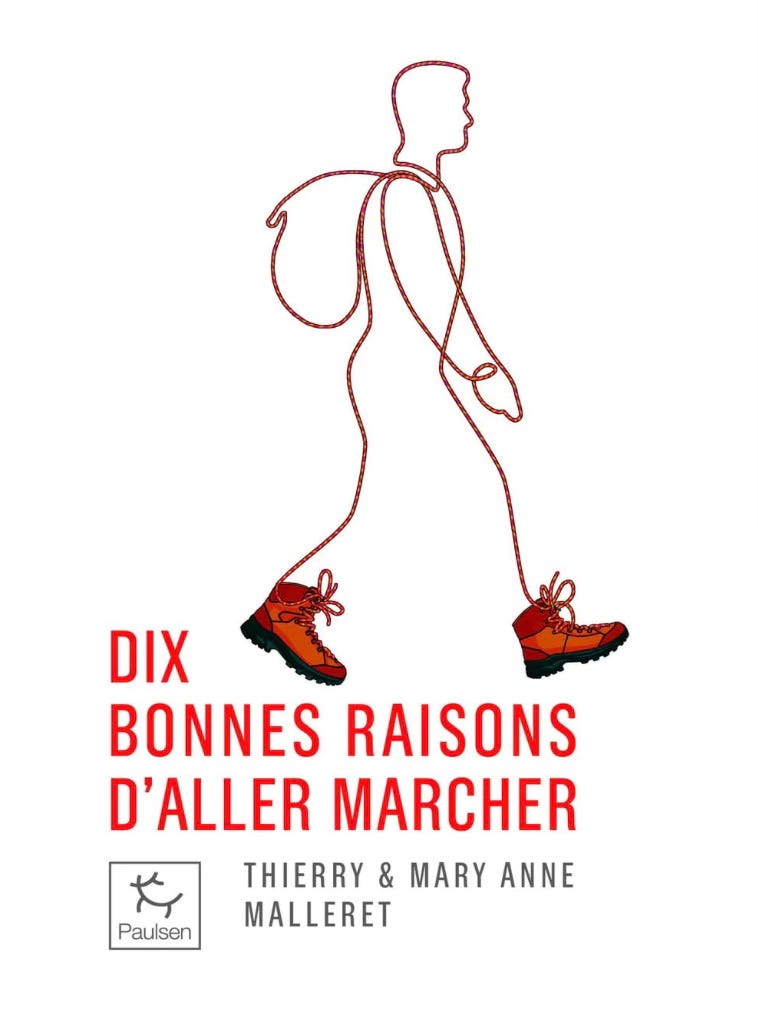MB's Weekly Selection
To accompany the Monthly Barometer, my selection of and reflection on 5 macro themes, together with 5 significant articles-videos to help you make sense of what's going on and what might be next
(1) MEN AND WOMEN APART… AND NO BABIES; (2) OPERATION SPIDERWEB AND THE FUTURE OF WAR; (3) MUSK – THE END OF DOGE AND OF THE REST; (4) GLOBAL OVER-INDEBTEDNESS; (5) WALKING IS ALWAYS GOOD, INCLUDING FOR CANCER
MEN AND WOMEN APART… AND NO BABIES - One of the most significant and consequential global trend. For months, we’ve been drawing attention to plunging fertility rates: a relatively recent global phenomenon whose social, economic and financial consequences will be monumental, and for a few countries devastating. So far, no research has come to a conclusive understanding of what the key reasons underpinning it could be. In this video interview (with transcript), (gifted), Alice Evans – a social scientist – goes through the various theories and explains why global declining fertility rates aren’t just a gender issue. In her opinion, they are also “a solitude issue”. People spend more time alone with the data showing that the correlation between the decline in people being married or a couple is almost one-to-one with the decline in children. If Alice Evans’ conclusions are correct, it means that it is “personal online entertainment”, ranging from social media to gambling to porn, that has been driving men and women apart and caused a collapse in fertility rates. Tech outcompetes personal interactions, but there are solutions. The video is 50 min+, but worth every minute!
OPERATION SPIDERWEB AND THE FUTURE OF WAR - A triumph of asymmetry that just rewrote the rules of war. By sneaking large numbers of drones in wooden cabins transported by truck deep inside Russia, and then launching them by remote control, Ukraine’s Operation Spiderweb destroyed or disabled up to a third of the bombers Russia has been using to launch long-range cruise missiles against it. This is proof that the advent of battery-powered drones has changed both the ‘playing field’ and the game: (1) it makes essentially the entire world into a battlefield (what happened in Russia could happen anywhere), and (2) shows that a $300 drone can destroy a $100m airplane (or any other valuable military or otherwise asset). It is now a given that any country around the world must recognize that legacy military equipment (large vehicles like aircrafts, tanks and warships) are becoming highly vulnerable to smaller, cheaper systems. The power of asymmetry, and the threat it also poses in terms of terrorist or state-sponsored attacks could not be more blatant. For a good explainer of Operation Spiderweb itself and what it means for the future of warfare, this article from the historian Phillips O’Brien (gifted) does a great job.
MUSK – THE END OF DOGE AND OF THE REST - Donald Trump’s second term will soon reach its fifth month, which is when everything might start unravelling in earnest. It’s hard to underestimate the critical damage that’s been wrought on everything the Trump administration has touched, whether it’s the economy (tariffs and fiscal policy), foreign affairs, the rule of law, research and education, the destruction of the government, and so on. To appreciate the extent of the breakage and the damage, it’s necessary to delve into the details. This is what this article in Propublica (free access) does. It examines one of the first DOGE casualties: the fallout from USAID withdrawal and how it hit the some of the world’s most fragile locations. As the US administration abandoned all at once its humanitarian commitments, some American diplomats are reporting how the cuts have led to deaths, violence and instability while also undermining anti-terrorism initiatives. And now that the oligarchic symbiosis between the most important man in the world and the richest man in the world has fractured, what happens next?
GLOBAL OVER-INDEBTEDNESS - There is a spate of articles documenting the current lacklustre sales of longer-dated bond (20, 30 and 40 years) which raise questions about the willingness of investors to lend to over-indebted countries as different as the US or Japan. There are far fewer articles on how excessive debt is crushing the developing world. Yet, recent data from the UN’s trade and development body reveals that 54 countries spend over 10% of their tax revenues on interest payments alone. The average interest burden for developing countries, as a share of tax revenues, has almost doubled since 2011. More than 3.3bn people live in countries that now spend more on debt service than on health, and 2.1bn in countries that spend more on debt than on education (the report with its clear visuals can be found HERE). As Stiglitz argues in this FT article (behind a strict paywall), an excessive debt burden operates as a roadblock. Because of it, too many low- and lower-middle-income countries are striving not to default on their debt contracts, but by doing so “are defaulting on development.”
WALKING IS ALWAYS GOOD, INCLUDING FOR CANCER - For the first time ever, a randomized controlled trial (not an observational study) shows conclusively that walking can benefit people with cancer. As just reported in The New England Journal of Medicine, people who participated in a structured exercise program (the equivalent of three to four hours of brisk walking per week for three years) lived longer without their colon cancer coming back and without the occurrence of new cancers. They had a 37% lower risk of dying and a 28% lower risk of recurrent or new cancer than those in the control group. The exercise program seemed not only to prevent new colon cancer but other cancers such as breast cancer. This NYT article (gifted) refers to the study and explains in simple terms how exercise contributes to lowering the risk of disease recurrence and death. Isn’t itgreat news? We explore in our own “Ten Good Reasons to Go for a Walk” not only how walking can go such a long way in improving our physical, mental and cognitive wellbeing but also one or two other reasons to keep walking.






